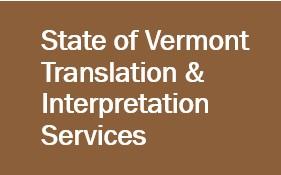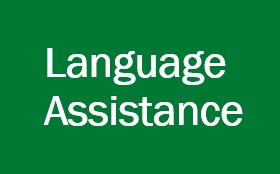Who is a Limited English Proficient (LEP) individual?
Individuals who do not speak English as their primary language and who have a limited ability to read, speak, write, or understand English can be limited English proficient, or "LEP." These individuals may be entitled language assistance with respect to a particular type or service, benefit, or encounter.
What are the relevant laws concerning language access for LEP individuals?
Federal laws particularly applicable to language access include Title VI of the Civil Rights Act of 1964, and the Title VI regulations, prohibiting discrimination based on national origin, and Executive Order 13166 issued in 2000. Many individual federal programs, states, and localities also have provisions requiring language services for LEP individuals.
What is Executive Order 13166?
An Executive Order is an order given by the President to federal agencies. The LEP Executive Order (Executive Order 13166) says that people who are LEP should have meaningful access to federally conducted and federally funded programs and activities.
On August 11, 2000, the President signed Executive Order 13166, "Improving Access to Services for Persons with Limited English Proficiency." The Executive Order requires Federal agencies to examine the services they provide, identify any need for services to those with limited English proficiency (LEP), and develop and implement a system to provide those services so LEP persons can have meaningful access to them. It is expected that agency plans will provide for such meaningful access consistent with, and without unduly burdening, the fundamental mission of the agency. The Executive Order also requires that the Federal agencies work to ensure that recipients of Federal financial assistance provide meaningful access to their LEP applicants and beneficiaries.
To assist Federal agencies in carrying out these responsibilities, the U.S. Department of Justice has issued a Policy Guidance Document, "Enforcement of Title VI of the Civil Rights Act of 1964 - National Origin Discrimination Against Persons with Limited English Proficiency" (LEP Guidance). This LEP Guidance sets forth the compliance standards that recipients of Federal financial assistance must follow to ensure that their programs and activities normally provided in English are accessible to LEP persons and thus do not discriminate on the basis of national origin in violation of Title VI's prohibition against national origin discrimination.
The Coordination and Review Section is responsible for government wide coordination with respect to Executive Order 13166. The Section serves as the federal repository for the internal implementation plans that each federal agency is required to develop, to ensure meaningful access to its own federally conducted programs and activities, and it also reviews and approves each funding agency’s external LEP guidance for its recipients. As the Department of Justice prepared its own plan, the Section reviewed and approved each component’s submission. Further, the Section developed the Department’s external guidance for its own recipients.
The Section has initiated an aggressive program of intra- and inter-agency consultations and actively solicits comments and suggestions from representatives of recipient and LEP individuals on how to identify and address the needs of LEP individuals under Executive Order 13166 in an effective and cost-effective manner.
What is a recipient of federal financial assistance?
Federal financial assistance includes grants, training, use of equipment, donations of surplus property, and other assistance. Sub recipients are also covered, when federal funds are passed from one recipient to a sub recipient. Recipients of federal funds range from state and local agencies to nonprofits and other organizations.
Title VI covers a recipient's entire program or activity. This means all parts of a recipient's operations are covered. This is true even if only one part of the recipient receives the federal assistance.
Example: DOJ provides assistance to a state department of corrections to improve a particular prison facility. All of the operations of the entire state department of corrections--not just the particular prison--are covered.
More information on Title VI, generally, can be found at Title VI of the Civil Rights Act of 1964 42 U.S.C. § 2000d et seq.
What is a federally conducted activity?
All federal agencies subject to Executive Order 13166 must design and implement a federally conducted plan to ensure access for LEP individuals to all of its federally conducted programs and activities (basically, everything that it does). For instance, the Civil Rights Division of the U.S. Department of Justice has a plan for ensuring meaningful access to its programs and activities for LEP persons. Other agencies and parts of agencies must do the same.
Who will enforce the LEP rules?
Most federal agencies have an office that is responsible for enforcing Title VI of the Civil Rights Act. To the extent that a recipient's actions are inconsistent with their obligations under Title VI, then such agencies will take the necessary corrective steps.
The Federal Coordination and Compliance Section (FCS) of the Civil Rights Division of DOJ has taken the lead in coordinating and implementing this Executive Order.
What are recipients of federal funds and federal agencies required to do to meet LEP requirements?
Recipients and federal agencies are required to take reasonable steps to ensure meaningful access to their programs and activities by LEP persons. While designed to be a flexible and fact dependent standard, the starting point is an individualized assessment that balances the following four factors:
- The number or proportion of LEP persons eligible to be served or likely to be encountered by the program or grantee.
- The frequency with which LEP individuals come in contact with the program.
- The nature and importance of the program, activity, or service provided by the program to people's lives; and
- The resources available to the grantee/recipient or agency, and costs.
As indicated above, the intent of this guidance is to find a balance that ensures meaningful access by LEP persons to critical services while not imposing undue burdens on small business, or small nonprofits.
Do recipients of federal funds have to submit written language access plans to the Department of Justice or to their federal funding agency each year?
No. While planning is an important part of ensuring that reasonable steps are taken to provide meaningful access to LEP individuals seeking services, benefits, information, or assertion of rights, there is no blanket requirement that the plans themselves be submitted to federal agencies providing federal financial assistance. In certain circumstances, such as in complaint investigations or compliance reviews, recipients may be required to provide to federal agencies a copy of any plan created by the recipient.
When developing plans and guidance regarding translation of documents, how do we determine which documents must be translated?
It is important to ensure that written materials routinely provided in English also are provided in regularly encountered languages other than English. It is particularly important to ensure that vital documents are translated into the non-English language of each regularly encountered LEP group eligible to be served or likely to be affected by the program or activity. A document will be considered vital if it contains information that is critical for obtaining federal services and/or benefits, or is required by law. Vital documents include, for example: applications, consent and complaint forms; notices of rights and disciplinary action; notices advising LEP persons of the availability of free language assistance; prison rulebooks; written tests that do not assess English language competency, but rather competency for a particular license, job, or skill for which English competency is not required; and letters or notices that require a response from the beneficiary or client. For instance, if a complaint form is necessary in order to file a claim with an agency, that complaint form would be vital. Non-vital information includes documents that are not critical to access such benefits and services. Advertisements of federal agency tours and copies of testimony presented to Congress that are available for information purposes would be considered non-vital information.
Vital documents must be translated when a significant number or percentage of the population eligible to be served, or likely to be directly affected by the program/activity, needs services or information in a language other than English to communicate effectively. For many larger documents, translation of vital information contained within the document will suffice and the documents need not be translated in their entirety.
It may sometimes be difficult to draw a distinction between vital and non-vital documents, particularly when considering outreach or other documents designed to raise awareness of rights or services. Though meaningful access to a program requires an awareness of the program's existence, we recognize that it would be impossible, from a practical and cost-based perspective, to translate every piece of outreach material into every language. Title VI does not require this of recipients of federal financial assistance, and EO 13166 does not require it of federal agencies. Nevertheless, because in some circumstances lack of awareness of the existence of a particular program may effectively deny LEP individuals meaningful access, it is important for federal agencies to continually survey/assess the needs of eligible service populations in order to determine whether certain critical outreach materials should be translated into other languages.


